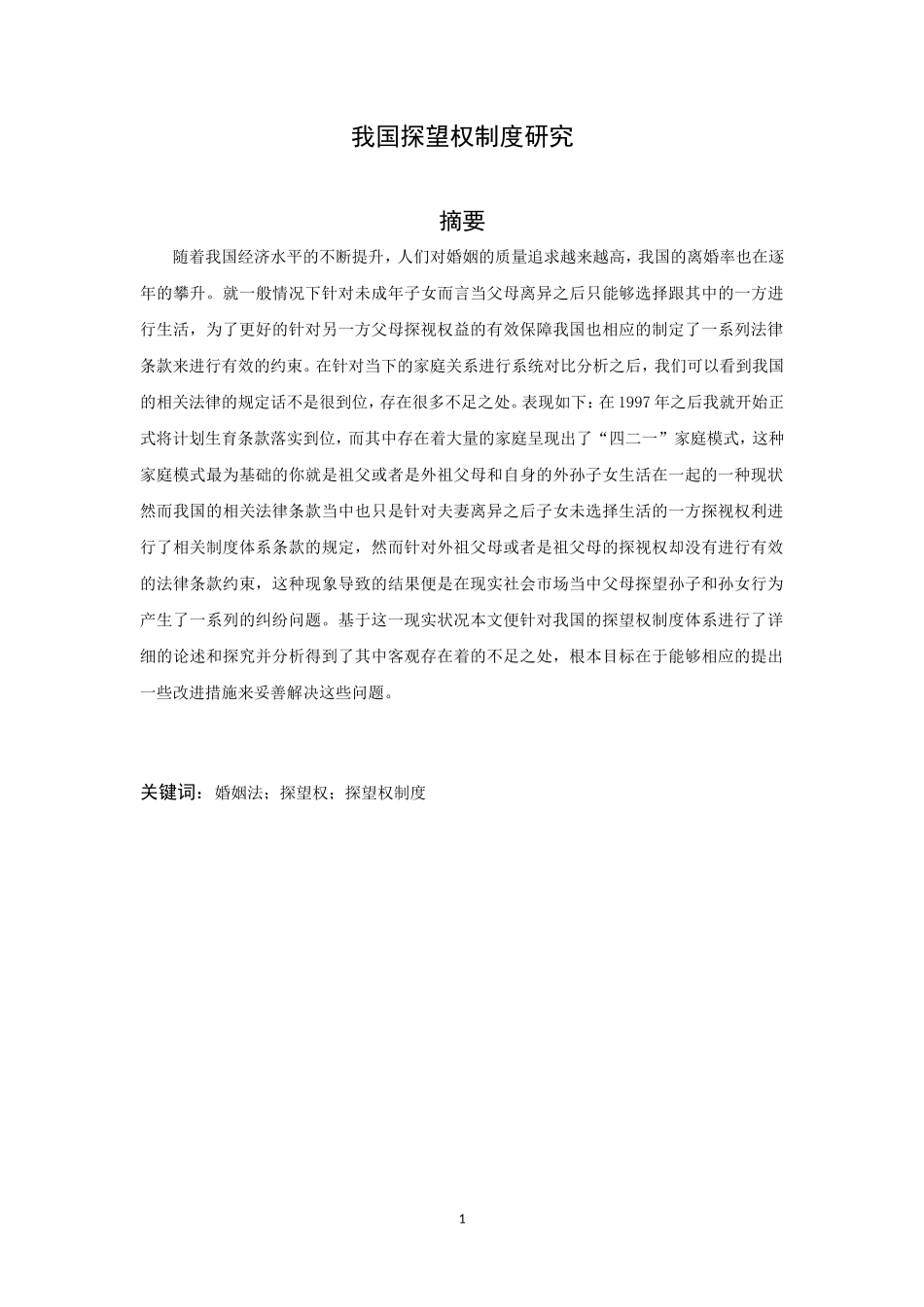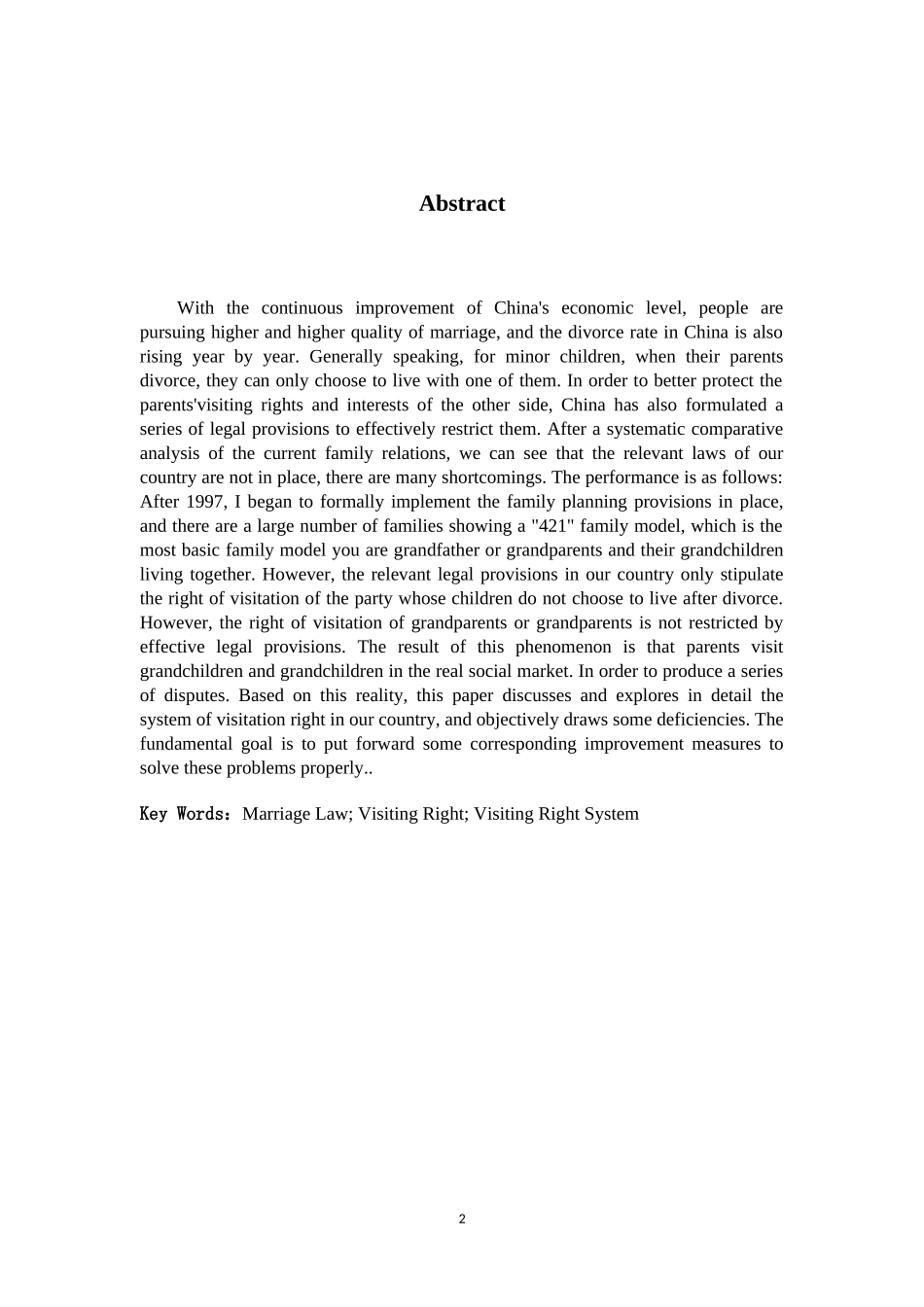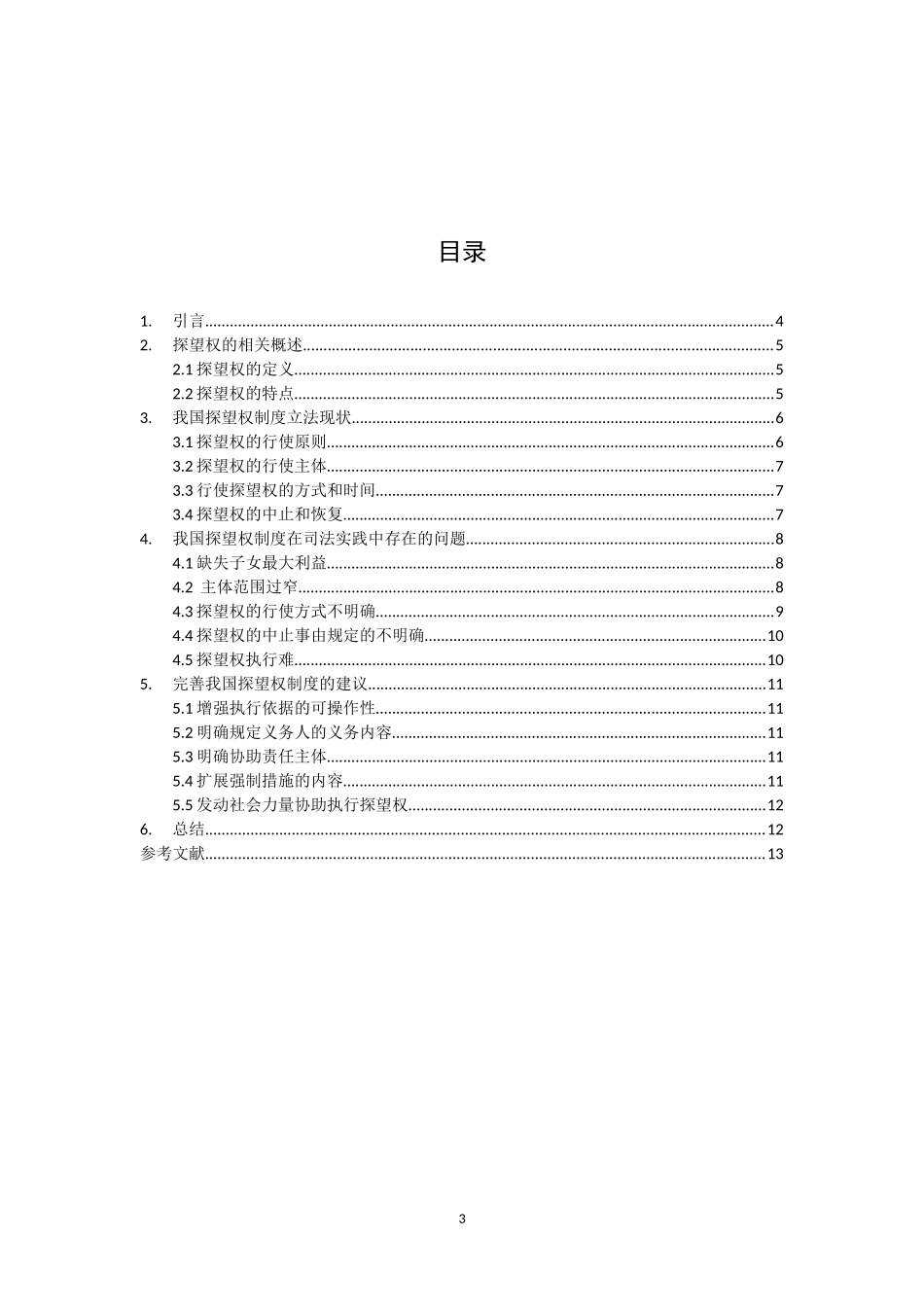我国探望权制度研究摘要随着我国经济水平的不断提升,人们对婚姻的质量追求越来越高,我国的离婚率也在逐年的攀升。就一般情况下针对未成年子女而言当父母离异之后只能够选择跟其中的一方进行生活,为了更好的针对另一方父母探视权益的有效保障我国也相应的制定了一系列法律条款来进行有效的约束。在针对当下的家庭关系进行系统对比分析之后,我们可以看到我国的相关法律的规定话不是很到位,存在很多不足之处。表现如下:在 1997 年之后我就开始正式将计划生育条款落实到位,而其中存在着大量的家庭呈现出了“四二一”家庭模式,这种家庭模式最为基础的你就是祖父或者是外祖父母和自身的外孙子女生活在一起的一种现状然而我国的相关法律条款当中也只是针对夫妻离异之后子女未选择生活的一方探视权利进行了相关制度体系条款的规定,然而针对外祖父母或者是祖父母的探视权却没有进行有效的法律条款约束,这种现象导致的结果便是在现实社会市场当中父母探望孙子和孙女行为产生了一系列的纠纷问题。基于这一现实状况本文便针对我国的探望权制度体系进行了详细的论述和探究并分析得到了其中客观存在着的不足之处,根本目标在于能够相应的提出一些改进措施来妥善解决这些问题。关键词:婚姻法;探望权;探望权制度1AbstractWith the continuous improvement of China's economic level, people are pursuing higher and higher quality of marriage, and the divorce rate in China is also rising year by year. Generally speaking, for minor children, when their parents divorce, they can only choose to live with one of them. In order to better protect the parents'visiting rights and interests of the other side, China has also formulated a series of legal provisions to effectively restrict them. After a systematic comparative analysis of the current family relations, we can see that the relevant laws of our country are not in place, there are many shortcomings. The performance is as follows: After 1997, I began to formally implement the family planning provisions in place, and there are a large number of families showing a "421" family model, whi...


